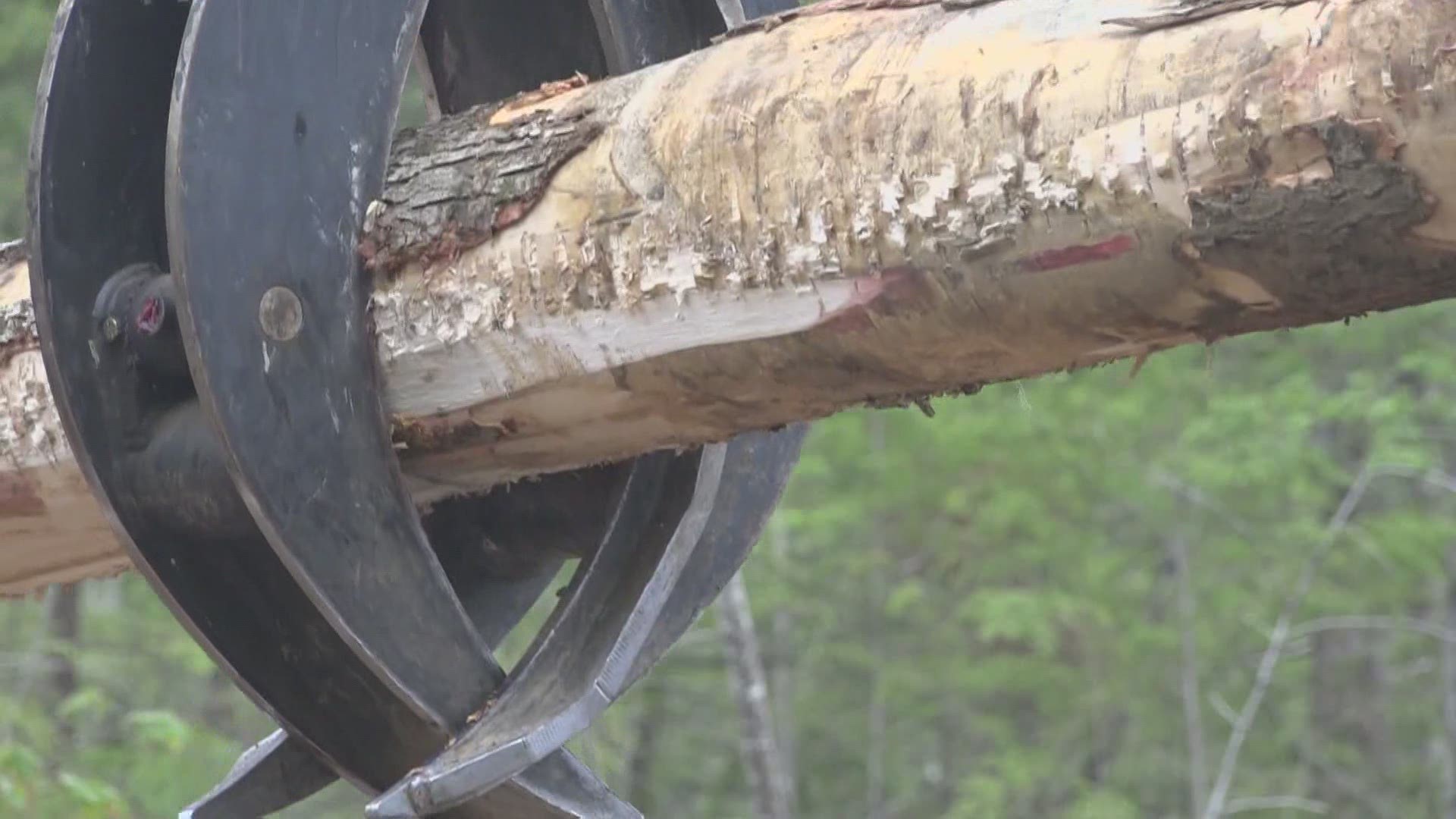GREENBUSH, Maine — The Mechanized Logging Operations Program (MLOP) is a 12-week certificate program that takes place in the woods of Maine. The program is in its fifth year.
Throughout the program, students spend several weeks harvesting timber and learning how to use the latest machines that were donated by equipment manufacturers.
The tuition-free program is put on through the Maine Community College System, specifically through Northern Maine Community College. It was created and is supported by the Professional Logging Contractors of Maine and the Maine Legislature also helps fund it.
Executive Director for the Professional Logging Contractors of Maine Dana Doran said the hands-on experience students gain operating equipment is something that's unavailable anywhere else in Maine and neighboring states.
"Without this program, we wouldn't be able to train those operators who would then be able to create everyday products whether it's toilet paper, paper towels, paper bags, housing," said Doran.
"We've had over 60 students that have matriculated through the program, and about 70% are working in the industry at this point," added Doran. "I mean it's vital. 90% of Maine is forested, it's an 8.5 billion dollar industry, and logging is about 20% of that."
Doran said there is no better, affordable, and efficient program for students like this one.
"What the industry is lacking is that new incoming workforce, because it costs so much to train somebody new," said Donald Burr, coordinator of the program.
The 12-week program teaches students about safety, species of trees, and then takes them into the woods to learn about different machines used in the industry.
"Every machine has its own personality and they need to figure out how this machine works, and how it works efficiently and how they can put down what we call...quality tons!" said Burr.
"It's incredible. The classroom is inside a garage, a working functioning garage so we can see, we can touch, we can do whatever. Then you take and bring what you learned into the woods," said 18-year-old student Dawson Chauvette.
"The average age of the current logging workforce is creeping upward, with many workers at or near retirement, and not only do we need to replace the person doing the job, but we also need to replace the knowledge and wisdom of these workers," added Burr.
"Actually being able to get in the seat and behind the joysticks of a machine that has less than 300 hours behind it is amazing, to say the least!" said Andrew McLaughlin, another student of the program.
After those intense 12-weeks, "they will know and understand tree species, they'll know and understand best management practices, they'll know and understand equipment operations, maintenance of that equipment, markets where they are going to start selling wood," said Doran.
"Now, here I am, doing what I'm doing, and I'm loving it," said Chauvette.
"This project is a great example of how collaboration and cooperation between business, industry and higher education can address workforce concerns," said Timothy Crowley, Northern Maine Community College President.
Generous equipment donations come from Milton CAT/CAT Forest Products, Nortrax Inc./John Deere, and other industry partners.
Doran said the demand for skilled operators of the feller bunchers, harvesters, grapple skidders, forwarders, delimbers, and other mechanized logging equipment that now harvests more than 95% of all timber in Maine is strong.
"Many current operators are reaching retirement age and the steep costs of training new operators is driving up demand and wages. Mechanized logging operators are among the highest-paid members of the logging workforce," said Doran.
Maine's loggers are a vital part of the state's forest products sector, which is worth an estimated $7.7 billion annually. According to a report by the Professional Logging Contractors of Maine, the logging industry contributed an estimated $619 million to the Maine economy in 2017, supported more than 9,000 jobs directly or indirectly, generated $342 million in labor income, and paid an estimated $25 million in state and local tax.
Anyone with an interest in future enrollment in the MLOP should contact Leah Buck at Northern Maine Community College at 207-768-2768. Click here for more information.
Additional information can also be found here.
There is no age cap on who is eligible, and over four seasons MLOP has trained students fresh out of high school as well as students who have been in the workforce for decades.

